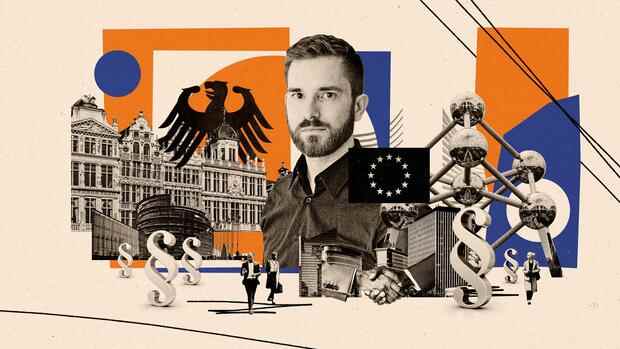Christoph Herwartz, correspondent in the Handelsblatt office in Brussels, analyzes trends and conflicts, regulatory projects and strategic concepts from the inner workings of the EU. Because anyone interested in business needs to know what’s going on in Brussels. You can reach him at [email protected]
While the bravery of the Ukrainians and their president is being praised across Europe, Hungarian Prime Minister Viktor Orban is continuing his feud with Volodymyr Zelensky. The Hungarians had clearly confirmed Orban in office just over a week ago. Orban said afterwards that Zelensky was one of his “opponents” during the election campaign.
The Ukrainian President replied that Orban had to choose between Moscow and the West, which did not lead Orban to condemn Bucha’s war crimes. Instead, the Ukrainian ambassador in Budapest was summoned, a sign of a diplomatic scandal.
It’s not just about words. Orban is willing to pay for Russian oil and gas in rubles – against the consensus of other Western states. Ukraine speaks of an “unfriendly attitude towards our state”. The Austrian Vice President of the European Parliament Othmar Karas has already described Orban as “Putin’s spokesman in the EU”.
And in fact, Orban sometimes coordinates better with Putin than with his European partners: Before inviting the conflicting parties to Hungary for peace talks in the Normandy format, he telephoned Moscow, but not Kyiv or Brussels.
Top jobs of the day
Find the best jobs now and
be notified by email.
Orban’s ruble decision gives an idea of how quickly the much-vaunted unity among the EU states can end. Hungary has not yet allowed sanctions against Russia to fail. However, Orban says he has reached a red line on oil and gas.
But calls for a far-reaching energy embargo will not go away anytime soon. A large majority of MEPs voted on Thursday for an immediate ban on imports of coal, oil and gas.
Scenarios without Hungary possible
Brussels is already playing through how things could continue without Hungary. EU sanctions must be decided unanimously. If that doesn’t work, 26 of the 27 states could agree on sanctions that all of these countries then enact independently.
The fact that Hungary vetoes EU decisions is a scenario that has been discussed for months anyway. Because it was foreseeable that Hungary would be the first country against which the EU Commission would take action with the new rule of law procedure. That was confirmed last week. This procedure may result in Hungary being cut off from EU funds. Escalations cannot be ruled out.
So far, however, it has not been Hungary that has been perceived as the biggest brakeman in the event of a possible energy embargo, but Germany. Economics Nobel laureate Paul Krugman caused a stir with a column in the New York Times. He drew a parallel to the financial crisis.
>> Read here: Why Viktor Orban is weakened despite his election victory
At that time, the Germans moralizingly blamed other countries for getting themselves into trouble with irresponsible fiscal policies. “I have the impression that Germany was warned much more clearly about its reckless dependence on Russian gas than Greece was about its borrowing,” Krugman wrote.
According to the economist, the austerity policy demanded by Germany at the time harmed Greece more than an energy embargo would now harm Germany.
More on this: Do we need an energy boycott against Russia now?
